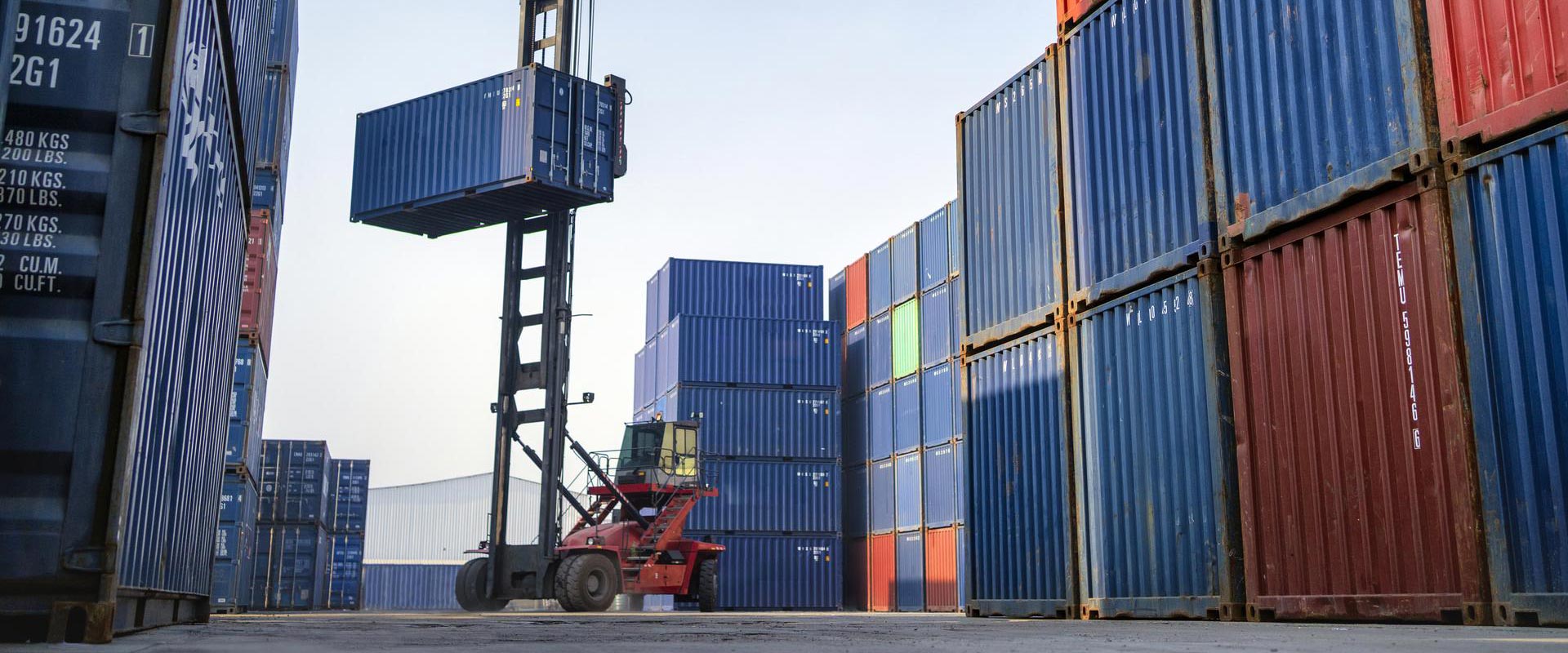Research shows that companies that export are more profitable, productive, and innovative. We look at how your business can prosper abroad in new markets, how to manage potential risks, and how trade credit insurance can help you take the next step with confidence.
In 2021, the UK exported approximately £267.4bn in goods and services to the EU. However, only around one in 10 British businesses currently export which is well below continental competitors such as Germany, Denmark and the Netherlands.
The UK government is keen to increase the country’s export market. There is a government-backed export support team that can help with export questions, and in November 2021, the Department for International Trade launched a 12-point plan to boost exports to £1tn annually.
What are the benefits of exporting?
So, if you’re already doing business successfully in the UK, why take on the risk of exporting? Well, the benefits of exporting include:
- Access to more consumers and businesses
The UK accounts for less than 1% of the global population. If you’re not exporting, you’re missing out on over 99% of global consumers. By exporting your products globally, you open your business up to a much wider marketplace. - Business growth and increased profits
For example, Pricecheck’s export sales have grown from £8m to £40m in the past 10 years – a 400% increase. - Diversifying market opportunities
Diversification makes you less dependent on a single market. When you expand opportunities, you dilute risk. If the domestic economy begins to falter, you still have other active and growing markets for your products and services. - Expanding the lifecycle of mature products
If your domestic market has become saturated, introducing your products or services to new markets can give them a new lease of life in regions where competition is not as aggressive. - Economies of scale
Greater production can lead to better margins. And with the opportunity of reducing average unit costs comes an increase in profitability and competitiveness. - Where should I export to ?
If you’ve decided that the benefits of exporting outweigh the risks, it’s time to decide where to export to. In its 12-point plan, the government says that while the country’s strongest export markets have traditionally been the US and Europe, economic growth in the Indo-Pacific region is shifting the world’s centre of economic gravity eastwards.
UK trade figures from the Office for National Statistics (ONS) in October 2022, also show a continuing increase in exports to non-EU countries.
Understanding the current economic status of both the UK and the country you aim to export to is a crucial first step when considering the advantages of exporting.
Allianz Trade regularly updates its country and sector risk ratings, providing insights into the latest state of play for exporters.
For example, our September country risk reports show countries such as Australia, Belgium, Canada, Netherlands and the USA with the lowest short and minimum-term risk, and countries such as Venezuela, Argentina, Afghanistan and Pakistan at the top of the risk ratings.
What are the risks of exporting?
Unfortunately, while there are many benefits to exporting, there are, of course, some risks.
For instance, global debt collection can be tricky. In the 2022 edition of the Allianz Trade Collection Complexity Score and Rating, our experts warn that around $4.2tn is at risk in those countries where debt collection is most complex. Analysis shows that, currently, the three best countries to recover international debt in the world are Sweden, Germany and Finland, while it’s much harder for foreign companies to recover their dues in Saudi Arabia, Malaysia and the United Arab Emirates.
Here are five other key challenges to consider:
- Administration costs may rise, as you’ll have to deal with export regulations and licenses
- It can be tricky to build business relationships at a distance
- You could lose your focus on home markets and existing customers
- Multi-currency payments
- Supply chain disruption – delayed shipments could mean unhappy customers
But with the right partner, any risk associated with exporting can be safely managed.
With Allianz Trade Credit Insurance, you can grow with confidence and peace of mind.
Our market-leading credit insurance protects your cash flow by insuring your trade receivables, enabling you to trade domestically and abroad without the risk of bad debt.
When you partner with Allianz Trade, you also benefit from being connected to the latest credit risk data. This, in turn, can improve your access to finance through improved lending confidence.
Other considerations when selling abroad
Remember, you need to apply for licences to export your goods and make export declarations. Transportation will also be a key consideration to ensure goods arrive on time and in good condition. The government’s step-by-step guide to exporting is a good resource for discovering more about the exporting process.
Allianz Trade has considerable expertise in helping businesses take advantage of the benefits of exporting while tackling the risks.
You can learn more about the current export risks and opportunities across 17 sectors in 70 markets globally with Allianz Trade’s Trade Match. You can also get a free, no-obligation quote for trade credit insurance to see how it could support your exporting plans.
